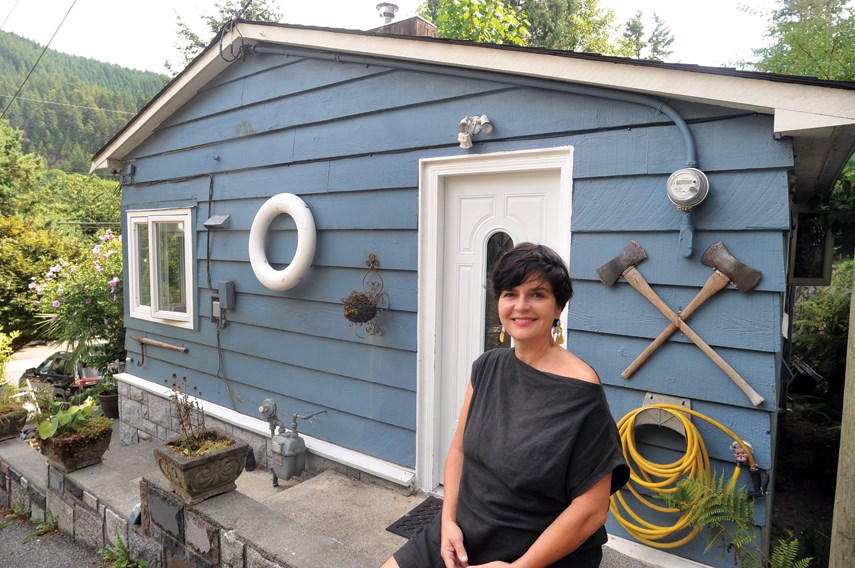This article has been amended since first posting.
A group of tenants and individuals who are like-minded in their adulation for Horseshoe Bay have come together to try and buy their rental accommodations, embracing a co-ownership model in a bid to stay in the community.
Heidi Woodley rents one of eight picturesque cottages, built across three lots, along Nelson Avenue in the West Vancouver neighbourhood.
Woodley says the tiny, colourful, craftsman-style homes are more than 100 years old and reflect Horseshoe Bay’s early history as a seaside community.
Earlier this year, when Woodley found out the cottages’ landlord was looking to sell, she and a group of others formed the Horseshoe Bay Cottagers' Collective in order to have a fighting chance to form their own housing community.
The landlord, Jim Bardal, who has cared for the properties for close to 30 years, was more than happy to embrace the collective because this would fall in line with his strong desire to ensure these character homes remained together and intact for the future, according to the seller's agent, Susie Alexander.
“Horseshoe Bay is extremely attached to these cottages – people take pictures of them and they paint pictures,” said Woodley. “They’re really the last little bit of that old working class West Van that doesn’t exist anymore. They were built by loggers and fishers.”
Earlier this summer, Alexander connected members of the cottagers’ collective with a real estate agent and co-founder of CoHo BC, an organization and initiative to support, encourage and simplify collaborative ownership of property in the province.
CoHo BC's agent helped the cottagers’ collective with a proposal, using a co-ownership model, so they could put in an offer on the .
Although the deal is subject to several conditions, the cottagers’ collective is hopeful they'll close the deal this fall.
While several tenants have already joined the collective and effectively bought in to the project, the group has set up to entice more buyers – buyers who would be co-owners of the entire property, have their own two-bedroom cottage, and effectively become their own landlords.
“We have achieved our down payment goals. We are now looking at methods of financing the rest,” said Woodley.
While co-ownership isn’t a new housing model, it has gained traction as an alternative in the Lower Mainland’s competitive housing market, offering people the lure of ownership security that is often more affordable than, say, buying a condo.
While there are many facets and legal complexities inherent to co-ownership, it will essentially mean the cottagers’ collective will share the mortgage for the property and be responsible for maintaining it as a group. Co-owners will each own a percentage of the title of the properties, notes Woodley.
According to CoHo BC, the potential advantages of co-ownership include helping a group build a community, saving money and creating new types of housing.
Once the ink has dried, the co-owners of the cottages don’t intend the properties to look anything like a commune, though they do envision those who sign on as co-owners will be interested in a more collective experience, notes Woodley.
“There’s some things we want to do with the community and work on common areas – we’re dreaming of an outdoor kitchen, a hot tub, a tree fort, you name it,” she said.
Woodley and the rest of the cottagers’ collective have been particularly busy as of late. Most co-ownership structures can take years to set up – the collective is trying to pull everything together in a matter of months.
But for the opportunity to own her own piece of West Vancouver history, it’s so far been worth the challenge, said Woodley.
“These cottages look to the past, but they also look to the future, which is: we can’t go on living the way we’re living – just plowing everything down,” she said.




